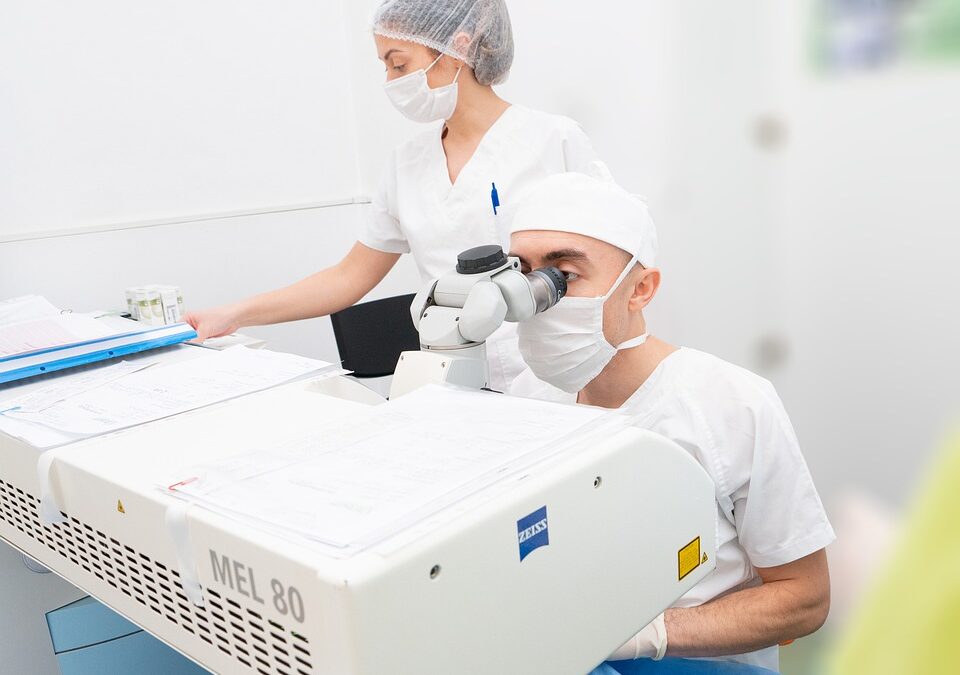As far as surgeries are concerned, the most prevalent is cataract surgery. The majority of cataracts occur in persons over the age of 50 and grow slowly over time. Infants can be born with congenital cataracts. In the majority of cases, mild cataracts do not affect vision at all. There are some cataracts that never progress to the point where they require removal. It’s time to consider cataract surgery if your cataract worsens and you have difficulties seeing well while driving and for other daily chores. The Cataract Surgery cost in Chennai is dependent on a number of factors and ranges from Rs. 15,000 to over a lakh.
To put your mind at rest, here are six commonly asked questions concerning cataract surgery:
What occurs during cataract surgery?
It is normally recommended to have cataract surgery if your vision and daily routine have been affected by your cataract. Cataract affects the eye’s natural lens, which is located right behind the pupil. Surgery to remove a cataract is a microscopic procedure that is usually done under local or topical anesthetic.
A blade or laser is used to make a small incision on the eye’s front surface (cornea). Then an opening is made on the thin membrane (anterior capsule) that encloses the eye’s natural lens. With a laser or ultrasonic equipment, the lens is usually split into smaller pieces so that it could be removed from the eye more readily.
A clear implant called an intraocular lens (IOL) replaces the entire lens once it has been removed to restore vision. Surgery is performed without stitches in a majority of cases.
How painful is the procedure to remove the cataract?
During the operation, mostly there will be no pain or hurting occurs. There may be slight or minimal discomfort. Even though you’ll be awake during the process, you won’t experience any pain. Your memory of the surgery will likely be limited and you’ll be fully aware, but you won’t be put under general anesthesia like you would for other major surgical procedures.
An anti-stress medication is frequently administered, followed by eye drops that numb the eye to reduce discomfort. After surgery, you may experience some moderate eye irritation as the medicine wears off. We don’t usually prescribe even a painkiller post the procedure.
Is it possible to relapse after having cataracts removed?
Artificial lenses do not grow back cataracts, although a condition known as a “secondary cataract” can occur 4-6 months to even years after the surgery. The risk of getting secondary cataracts is greater in those under 60 who have had cataract surgery in the past.
If you have a “secondary cataract,” YAG laser capsulotomy is a common treatment. An outpatient procedure, YAG laser capsulotomy takes only a few minutes in a clinic. A secondary cataract is unlikely to return following YAG laser capsulotomy.
Will both of my cataracts will be removed at the same time?
The operation is normally performed on one eye first if you have cataracts in both eyes. A few days later then the second eye is done. As a result, the first eye will be able to heal and your vision will settle before the second eye is operated on.
For individuals who are having extremely high refractive error, cataract surgery can be performed on both eyes on the same day. It is possible that these patients may feel discomfort if the surgeries were conducted on different days since they would experience a visual imbalance.
How long does it take for you to recover from cataract surgery?
Patients experience improved clearer vision but this improvement isn’t always immediate for a majority of people due to the effect of pupillary dilation. Cataract surgery has a quick recovery time. Any discomfort or soreness should subside within a few days although some patients can see clearly following cataract surgery in just a few days, full healing may take up to a month. Cataract surgery recovery time is usually short and easy, but there are a number of factors that might affect how quickly you recover.
Full recovery could take anywhere from four to six weeks, depending on the nature and extent of your cataracts, as well as your physiology and ability to heal. It’s essential to follow all post-surgery care recommendations and keep all of your doctor’s appointments.
If I don’t have cataracts, can I still get cataract surgery?
It is possible to treat both cataracts and nearsightedness with cataract surgery and an IOL. If you are nearsighted, your chances of retinal detachment following the procedure are higher than if you are not. Have a discussion with your doctor about the advantages and downsides of having a cataract surgical procedure.
If you don’t have cataracts but are nearsighted, IOLs can aid in two ways:
It’s called a “clear lens extraction” when the surgeon replaces the eye’s native lens with an IOL.
“Implantable contact lenses” refer to IOLs that are implanted into the eye without removing the native lens. You can either put the IOL before or behind the iris.
The most common reason for nearsightedness growing worse in adulthood is a cataract that begins in the middle of the lens (nuclear cataract).
Before and after cataract surgery, it’s important to think about what’s going to happen next. Our eye doctors can help if you are having more doubts about cataract surgery and what you may expect during the procedure. Overall it’s a very satisfying procedure with minimal discomfort and a very high success rate. This is truly one of the most pain free procedures in the world today.


